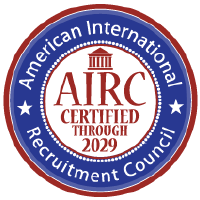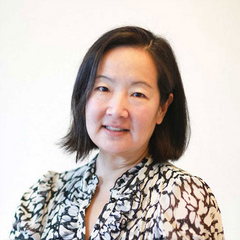
微信客服
wholerenguru3 (厚仁学术哥)
如果你正在考虑将来申请医学院,那么在你的本科生涯初期就应当开始考虑申请的组成部分。与申请本科不同,申请医学院的推荐信过程更加复杂,你选择的推荐人将在申请材料中定义你是怎样的人。

除了优异的成绩、研究工作、出版物、演讲、临床经验、志愿服务和出色的 MCAT 分数,你还必须包括一封综合信函(Composite Letter,简称CL)。 CL是医学院审查的主要推荐信,它包括3-5封个人推荐信,来自你选择的推荐人。 因此,要申请医学院,你需要从3-5个人的推荐信,然后你的CL作者将所有这些信的内容整合为一个综合推荐信。
我写这篇文章是为了给你提供关于如何完成CL的建议。我很自豪地说,在顶级院校工作时,让我写CLs的学生100%都被医学院录取了。
如果你正在考虑去医学院,那么在大一的时候就应该和学校的医学预科办公室(pre-med office)见面。学校有两种方法来决定CL作者:第一种,你选择你认为最好的推荐人,然后你自己问他们;第二种,学校有一个指定的人来写,你没有选择。每种情况都有利有弊。
如果你能选择自己的CL写作者,你可以选择一个非常了解你并愿意为你的成功而欢呼的人。当然,认识一个在学界的老师,而且了解如何写作也很重要。 顾问,院长,或教授是这个角色的理想人选。 在为我的学生写推荐信时,我能够增强和补充他们的推荐信所提供的知识。例如,在为我的一个学生(他是一名运动员)写推荐信时,我可以在他教练的推荐信中添加词语,同时简述他的同龄人如何谈论他对学业的承诺,因为我也认识他的队友。必须选择自己的CL作者的缺点是,他们可能是新手,可能不会花时间定期进行,因此,CL的质量会有差异。
如果你不能选择你的CL写作者,那么你的学校可能已经指定了顾问(或学校职员)来为学校里所有医学院申请者写此类推荐信。 除了开一两次会讨论你在医学院申请方面的优势和雄心,他们可能根本不认识你,但是从好的方面来说,这是他们日常工作的一部分。 因此,由于工作原因,他们在写这些信件方面是专家,尽管因为你和他们没有长期的关系,他们不能像谈论本人一样谈论你。 指定 CL 作家的学校可以确保他们所有的医学院申请人都具有与 CL 信件相似的质量。
你是否可以选择你的 CL 作家不是你可以改变,因为这往往是学校的政策。 然而,你可以把控的是谁来写这些推荐信。通常情况下,你可以邀请3-5个人提交推荐信,这些内容将成为你最终CL的组成部分。
选择推荐人总是一个漫长的过程——无论是本科生、研究生还是医学院的申请。
重要的是,不要要求你的 CL 作者也是3-5名推荐人之一。 因为CL作者要阅读所有的推荐信,以便总结编写 CL,所以他们在编写CL时有空间有想法去添加到CL中。 因此,不要浪费你的推荐信,因为一个聪明的 CL作者会知道何时将他们的声音注入到 CL 中。
对于医学院来说,最好是选择那些了解你的不同侧面的人。不要选择在五个不同的科学讲座课上教过你的五位教授。 他们对你的了解是相似的,这样你的独特性就没有发挥的空间——他们在科学课上教你,课程多是讲座形式,他们在课堂上传递的信息与其他同学类似(这意味着他们与你的互动方式是相同的)。
你需要去构思,呈现这3-5封信的不同之处:哪个老师见过我在实验室里表现出色,哪个老师见过我和同伴一起管理团队,又有哪个人见过我为当地社区积极工作? 虽然你可能认为有三封教授的推荐信会很棒,他们在课上给了你“ A” ,但这也可能对你不利。如果他们从来没有看到你积极地工作,从来没有和你谈过你是如何解决问题的,或者除了“她在我的课堂上轻松地获得了 “A”之外,不能直接谈论你的职业道德,那这些和医学院从你的成绩单上看到并无两样。 然而,假设你在另一门课上得了“ B” ,你一开始成绩很低,但通过经常与教授见面讨论,在office hour与教授交流研究,加上表现出克服自身弱点的能力,那么你就拥有了一封证明自己坚韧的信。
在教室以外担任志愿角色,临床角色或职位的人也很重。最多包含5封推荐信,所以你应该适当考虑课堂之外的推荐人。例如,体育教练经常能给学生增加一个教授无法言及的侧面:教练看到学生在比赛中输球后仍然坚持训练,看到学生克服了伤病,看到学生与队友争辩但仍然团结,为同个目标努力。
无论你做什么,都要记住以下几点:
1. 你要尽早询问这些人,看他们是否愿意帮你做推荐(他们有可能会拒绝)。
2. 给他们足够的时间向你索要材料(例如简历、出版物、成绩单) ,然后写信。推荐人帮你做这件事并不会收到任何报酬,他们给你的是善意的帮助。所以你要体谅他们的时间,并充满感激。
3. 如果出于某种原因,你需要再次向他们要求写推荐信,希望他们积极地记住你,并愿意再次帮助你(再次声明,他们没有义务这样做)。
4. 大多数推荐人会乐意听到你申请的结果,所以如果你被录取并决定你将去往哪里的话,请记得及时告知推荐人。
结语:我知道医学院的申请过程很艰难,我希望这封综合信件的文章所提供的见解能够帮助你,以便在寻找谁为你写推荐信时做出明智的决定。当然,在你的申请程序中还有许多其他因素需要考虑,我还是希望从这里开始对你有所帮助。
附上一张图片,概述文章里的重要信息:

英文原文:
Applying to Medical School – what is the composite letter?
If you are considering medical school in the future, it is important to begin thinking about the components of the application very early in your undergraduate career. Unlike the application for undergraduate studies, the letters of recommendation process is more complex and who you choose will define you in the application you submit.
In addition to great grades, research work, publications, presentations, clinical experience, volunteering and excellent MCAT scores, you must also include a Composite Letter (CL). The CL is the main recommendation letter that medical schools will review, and it consists of 3-5 individual letters from your selected reference providers. Thus, to apply to medical school you will need to request recommendation letters from 3-5 individuals, and then your CL writer will integrate all of these letters into one summarized Composite Letter.
I write this article to advise you on how to approach the CL. I am proud to say that when working in top tier institutions, 100% of the students who asked me to write their CLs were accepted into medical school.
If you are considering medical school, meet with your school’s pre-med office as early as freshman year. Schools have two ways in which to determine the CL writer: one, you select who you think would be best, and you ask them yourself or two, the school has a designated person to write composite letters and you do not have a choice in this. There are pros and cons to each situation.
If you are able to select your own CL writer, you can choose someone who knows you well and is invested in your success; having a person who is an academic and has knowledge of how to write is, of course, also important. An advisor, a dean, or a long time professor are ideal candidates for this role. When writing CLs for my students, I was able to enhance and supplement the knowledge that their recommendation letters offered; for example, when writing a CL for one of my students (who was an athlete), I could add in words from his coach’s recommendation letter but also talk about how his peers spoke of his commitment to his studies, since I also knew his teammates. The cons of having to select your own CL writer is that they may be new to the process, may not spend their time doing this regularly, and consequently, there will be variations in the quality of CLs.
If you are not able to select your CL, your institution has likely designated pre-health advisors (or various staff) to write these letters for all the medical school applicants at your school. They may not know you at all aside from a meeting or two to discuss your medical school ambitions, but on the plus side, this is part of their day to day job. Thus, they are more ‘experts’ in writing these letters because of their jobs, though they will not be able to speak about you as personally since you have no long standing relationship with them. Schools that designate CL writers ensure that all their medical school applicants have a similar quality to their CL letters.
Whether or not you can select your CL writer is not something that you can change because this is often school policy. However, what you can control is who you will ask to submit letters on your behalf. Typically, you can ask 3-5 individuals to submit letters that would become part of your final CL.
Selecting who will write your letters of recommendation is always a process — be it for undergraduate, graduate or medical school applications.
Importantly, do not ask your CL writer to also be one of the 3-5 reference writers. Because they read all of the recommendation letters in order to summarize them to create the CL, they will have space to add their thoughts into the CL when they write the CL. Thus, do not waste one of your reference letters because a savvy CL writer will know when to inject their voice into the CL.
For medical school it is best to select individuals who know you in different ways. Do not select five professors who have taught you in five different science lecture classes. What they would know about you would be similar, and thus, there is no space for your uniqueness to shine — they taught you in a science class, the course was set up as a lecture, their delivery of information in the class is similar to all the others (which means how they interact with you is the same).
You want to think about variety in these 3-5 letters: who has seen me excel in a lab, who has seen me engage with peers to manage a team, who has seen me actively working within my community? While you might think it would be great to have 3 letters of recommendation from professors who gave you an “A” in their science class, it might not work in your favor. If they never saw you actively work, never talked to you to see how you solve problems, or cannot speak directly to your work ethic beyond “she earned an A easily in my class”, that does not say anything more than what the medical school will see on your transcript. However, if you earned a “B” in another class but started off with low grades but met with your professor regularly, engaged with the professor in office hours and research, plus showed an ability to overcome your weaknesses, you have a letter that demonstrates your resiliency.
People who have seen you in volunteering roles, clinical roles or positions outside of the classroom are also important; with up to five recommendation letters, you should think beyond the classroom for your letter writers. For example, coaches often add a facet to students that professors cannot: coaches see students lose at games and come back to play, they see them overcome injuries, and they see them argue with teammates but still band together to meet a greater good.
Whatever you do, things to keep in mind: You want to ask these individuals early to one, see if they are willing to write on your behalf (remember, they can say no) and two, give them plenty of time to request materials from you (e.g., resume, publications, transcripts) and write the letter. These individuals do not get paid to do this work, and it is a kindness that they are offering to you. Be considerate of their time and acknowledge them with gratitude; if for some reason you need to ask them for reference letters again, you want them to remember you positively and be inclined to assist you (because, again, they are not obligated to do so). Most writers like to hear the results of your application, so it is always courteous to update them if you are accepted and make a decision on where you will matriculate.
I know that the medical school application process is a tough one, and I hope the insight provided about the Composite Letter will help you make wise decisions about who to ask when it comes time to seek out reference letters. Certainly there are many other factors to consider in your application, but I hope that starting you off here is helpful.
美国招生协会
AIRC权威认证
80位
美国双语导师
10年+
名校申请经验
8600+
名校名企录取

微信客服
wholerenguru3 (厚仁学术哥)

AIRC 权威认证

ICEF 权威认证

NCDA 权威认证






















